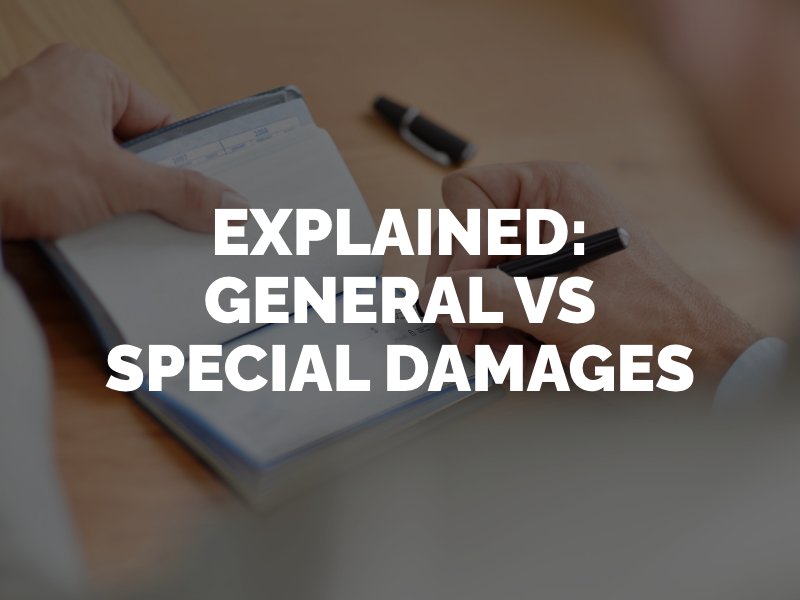General Damages vs. Special Damages in a California Lawsuit
In a personal injury lawsuit, damages refer to the monetary compensation that the plaintiff (victim) seeks for the harm they suffered due to the defendant’s (at-fault party’s) negligence or intentional wrongdoing. Damages are categorized into two main types: general damages and special damages.

General Damages
General damages, also known as non-economic damages, are awarded for losses that are not easily quantifiable. For example:
- Pain and suffering: This can include physical pain, emotional distress, and mental anguish that the injured party has suffered.
- Loss of enjoyment of life: The loss of the ability to participate in activities that the injured party previously enjoyed, such as hobbies, sports, or spending time with family and friends.
- Loss of consortium: The loss of companionship and affection that the injured party’s spouse or family members may have endured because of the injury.
- Disfigurement: This refers to any visible scarring or disfigurement caused by the accident.
- Permanent disability: Compensation for any permanent physical or mental impairment.
These damages are intended to compensate the injured party for the physical, emotional, and psychological harm they have suffered due to the accident or injury.
Special Damages
Special damages, on the other hand, are awarded for specific, monetary losses that can be calculated with relative ease. Examples of special damages include:
- Medical expenses: This includes any expenses related to medical treatment that the injured party may have incurred as a result of the accident or injury, such as hospital bills, doctor’s fees, medication costs, and physical therapy.
- Lost wages: Any income that the injured party may have lost from being unable to work, including both past and future lost earnings.
- Property damage: Compensation for the repairs or replacement of any property damaged in the accident, such as a vehicle or other personal property.
- Cost of living with a disability: If the injured party is left permanently disabled, they may be entitled to compensation for any additional expenses they may incur as a result of their disability, such as the cost of a wheelchair or other medical equipment.
These damages are intended to compensate the injured party for the financial losses they have incurred.
Calculating General Damages vs. Special Damages
The amount of general damages awarded in a personal injury case is typically left to the discretion of the jury or judge, based on the evidence presented and the specific circumstances of the case. Factors that may be considered in calculating general damages include the severity of the injury, the duration and extent of pain and suffering, the impact on the injured party’s quality of life, and the emotional distress and mental anguish suffered by the injured party.
The amount of special damages awarded in a personal injury lawsuit is typically based on the actual monetary losses incurred by the injured party. The injured party or their attorney will typically add up all the expenses related to the injury, such as medical bills, lost wages, property damage, and any other out-of-pocket expenses incurred. The injured party may also need to provide evidence to support their claim, such as medical bills and pay stubs or a letter from their employer.
